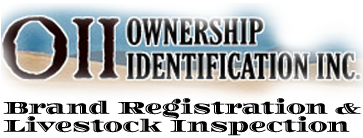
Premise Identification – Important for Safeguarding BC’s horses.
The British Columbia Premises Identification (PID)Program was established to reduce the impact of livestock disease or natural disaster emergencies by gathering and organizing information about the location of animals, the types of animals at each location and how to quickly contact those responsible for the health of those animals. PID has been mandatory since July 2022
What is a Premises ID?
A Premises ID is a unique nine character code assigned to a single legal land description or land use permit. In British Columbia, all Premises ID numbers start with BC (for example: BC449GP7N). Use of the Premises ID eliminates confusion for emergency responders caused by multiple addresses, complicated legal land descriptions, and duplicate or changing farm names. These purposes are limited to animal disease responses or environmental disasters affecting animal health, and disclosure is only permitted to other government agencies involved in the emergency response.
Protection of personal information is a primary objective of the Premises Identification program. Per the Animal Health Act, personal information cannot be disclosed for any purposes except those prescribed in the act.
A premises is a parcel of land where animals, plants or food are grown, kept, assembled or disposed of and includes such places as:
|
|
Premises Identification
- Allows for rapid notification of livestock and poultry stakeholders
- Helps prepare for animal health, natural disaster and food safety emergencies (for example, livestock disease)
- Facilitates rapid evacuation of animals in a natural disaster emergency (for example, floods or fire)
- Helps track animals in an emergency
- Reduces the impact of an emergency
- Helps maintain or provide for greater market access
Livestock and poultry owners can provide basic land and contact information for their premises and will receive a Premises Identification Number that is unique to the parcel of land.
If you have Farm Status (for property tax purposes) your PID number can go right on your Famer ID card, keeping it accessible. You do not have to have Farm Status to register your property.
All properties with one or more horses (including donkeys and mules) on them must register. If you own an animal that is only kept at locations controlled by someone else (e.g. boarding stable) and that animal will never be kept at a premises under your care and control (e.g. your own farm or acreage), you are not required to register for a PID Account. However, you should ask for the PID Number from the operator of the boarding/training facility and keep it for your own records.
If previously registered, make sure your details are up to date with new phone numbers or changes in the number or type of animals on a site. This information is critical during an emergency when owners need to be informed and livestock may need to be moved.
How do I register my Premises?
How to register
Or
Submit completed forms
By Mail:
BCPID, Ministry of Agriculture
1767 Angus Campbell Road
Abbotsford, BC V3G 2M3
By Email:
By Fax:
604-556-3030
What does it cost to register?
There is no financial cost to register your premises.
Premise Identification is a positive step for equines. The program’s benefits include mitigating loss from disease outbreaks and natural or man-made disaster. Some of the statistical data (how many horses are in the province, for instance) may be provided for researchers. This data will not include personal information about the premise owner. Accurate data on horse numbers is critical to maintain and receive support for continued access to facilities, trails, land use and the right to keep horses.
To register or find out more – BC Premises ID
OWNERSHIP IDENTIFICATION INC. (OII) LIVESTOCK IDENTIFICATION
British Columbia’s brand registration and inspection program protects cattle, horse and bison owners against loss of animals by theft, straying or misappropriation. The program consists of the registration of livestock brands and the inspection of cattle and horses for lawful possession prior to transportation, sale or slaughter.
Under the designation from the Government of BC, OII administers the Livestock Identification Act and the Livestock Identification Regulation. To fulfill this role there are livestock inspectors spread throughout the prescribed area of the Province. These are all part-time employees of OII that have been appointed by the Minister of Agriculture to be inspectors under the Livestock Identification Act.
Horse Ownership Inspection (Brand Inspection)Inspection is required by BC law in the following instances when consigned to a saleyard in the prescribed area of the Province, inspection will occur at the saleyard when transported to a slaughterhouse in B.C. or Alberta or a public sale in Alberta, the horses must be inspected prior to transport. Inspection must take place when required whether animals are branded or not. OII web site
LIVESTOCK MANIFESTS
For transportation to competitions and horse shows within the province it is not a requirement to have a manifest; however, it is recommended and encouraged. It is important that the Livestock Manifest be filled out correctly. To obtain copies of the Livestock Manifest Form ($5.00 per booklet including taxes), contact Horse Council BC.
CANADIAN LIVESTOCK RECORDS CORPORATION
CLRC is pleased to now be providing all owners of non-purebred horses with an opportunity to get an attractive certificate for their animals at a very reasonable cost. Any horse that is not eligible for registration with a Canadian breed association is eligible for Equine CAN ID. All we need are a few simple details: the horse’s name and sex and an approximate date of birth (year only is sufficient), and a colour photograph or a microchip, tag number or tattoo. You don’t have to know your horse’s ancestry, but if you do know it, it can be included on the certificate. For details and how to apply click on link above.



Get Social